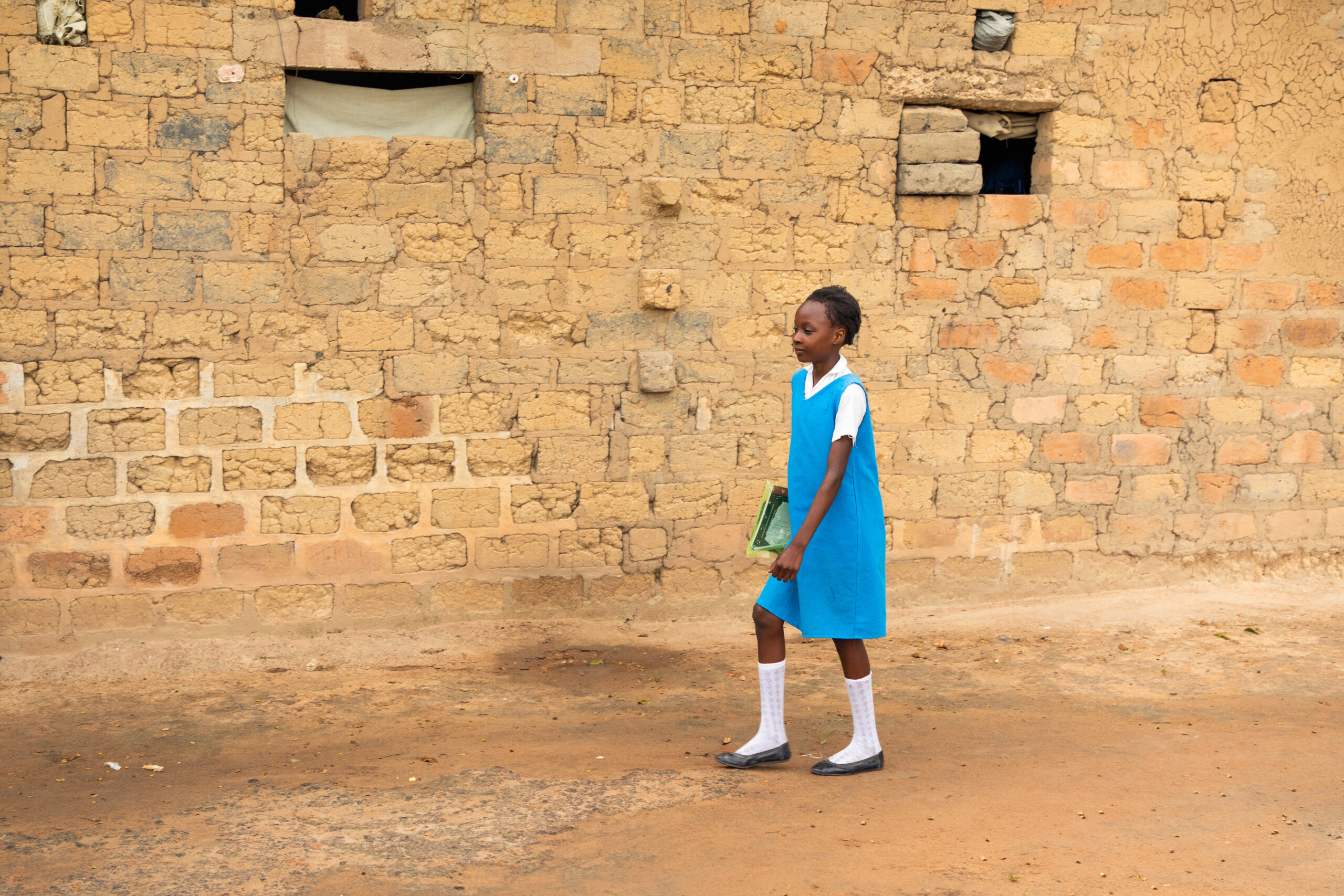
The Population Council’s research on education centers gender equity in our approach to addressing global challenges. Recent evidence has highlighted gendered effects of the climate crisis, suggesting that climate change disproportionately harms women and exacerbates harmful gender norms. Those effects intersect with the ways extreme weather and climate-linked instability disrupt education and cut off access to social and economic resources. Yet education is not only a frequent and early casualty of climate-induced destabilization, but also a crucial system that can contribute to our ability to adapt.
Climate, gender, and education each face their own urgent problems: there is a global crisis of learning; discriminatory, patriarchal regimes are resurging around the world; and flooding, drought, heatwaves, and other climate events threaten billions of lives and livelihoods.
These crises—and responses to them—are intertwined. When women’s rights, civic participation, and voices are not respected, there are profound negative impacts on individuals and societies. Among those harmful effects are silencing women in the fight against climate change and replicating gendered injustices in attempted solutions. In parallel, the climate crisis impairs knowledge and skills acquisition for the rising generation. Extreme weather events and flooding close schools; prolonged droughts and heatwaves negatively affect food supplies, economic security, mental health, and cognitive development. And the global learning crisis—amplified by the pandemic and rising political instability—undermines human capital and leaves economies and governments under-equipped when we most need to act.
Intersectional Risks, Interwoven Strengths
Education systems are powerful because they play multiple roles for communities, societies, and students. Schools are simultaneously places of learning, places where norms and skills are acquired and practiced, places where friendships are established and communities formed, and places where food and resources are provided.
That makes the loss of schooling an especially damaging effect of climate change. The Malala Fund estimates that climate change prevents 12.5 million girls from completing school due to damaged infrastructure, economic conditions that push school fees out of reach, and adverse health effects. One recent Council study explored children’s learning outcomes in relation to exposure to droughts. Rainfall shocks during early childhood correlated with lower reading, math, and non-verbal cognitive scores and reduced completed schooling by almost an entire year.
Education also has tremendous power as a place of intervention. There are many areas where education systems have already been leveraged, at scale, to improve health, education, and equity outcomes. School feeding programs, like those that provide take-home rations to students, can improve both health and learning outcomes—often especially for girls. Schools can teach students about climate change and equip them with green skills for agriculture, renewable energy, green technology, and community health. They can offer programming to break down inequitable gender norms or to improve mental health. They can offer empowering safe spaces for girls and young women.
Gaps in our Understanding
The interactions between education, gender, and climate were forecast by existing sector-specific research, and their urgency is attested by the lived experience of young people around the globe. The evidence base on these interactions is growing, but critical gaps remain, such as:
- What climate adaptation programs are effective, and reach the marginalized and most vulnerable?
- How do we adapt impactful education programs like school feeding, structured pedagogy, and cash transfers in the face of climate shocks and climate change?
- How can climate adaptation programs disrupt—rather than perpetuate—discriminatory systems and support climate justice?
- What approaches to education and to advocacy best empower young voices in local and global discussions and decision-making?
The Power of Education
The Population Council’s is prioritizing four key areas at the intersections of education, gender and climate solutions:
Climate justice literacy. We are conducting participatory, co-led research in partnership with youth leaders on how climate change is affecting their lives and education. This work will inform school-based and extracurricular programming to address key questions. How do we teach young people about the effects and causes of climate change? What are developmentally appropriate ways to help young people think critically about gender, race, and other power disparities in the context of climate? And how can climate and education solutions contribute to equity and justice?
Preparing the rising generation for green economies. Key steps include creating gender equitable on-ramps to STEM (science, technology, engineering and mathematic) subjects in school and STEM fields in work; shifting currently fossil fuel-based technical and vocational training programs to focus on green skills, enhanced agricultural livelihood training in nature-based solutions, and other climate adaptation strategies. These programs improve equitable access to green jobs, and support communities in co-developing climate solutions.
Finding solutions for barriers to schooling. Climate change is worsening educational access, attainment, affordability, and learning for young people—especially girls. We can apply lessons from remote learning during COVID to build solutions for climate-related school closures. We must find ways of protecting against heatwaves and averting the nutritional deficits that affect cognitive capacities. And we must address the additional, frequently gender-specific, burdens at work and at home imposed by climate change.
Building inclusive programs. Education plays out both in schools and in communities. With 129 million young people already out of school and more driven out by climate change every year, community-based education opportunities are critical—and often, only—resources available to marginalized out-of-school girls. The Council is leveraging our expertise in self-help groups and safe spaces to develop skill-building, climate literacy, and other opportunities through these kinds of non-formal settings.
